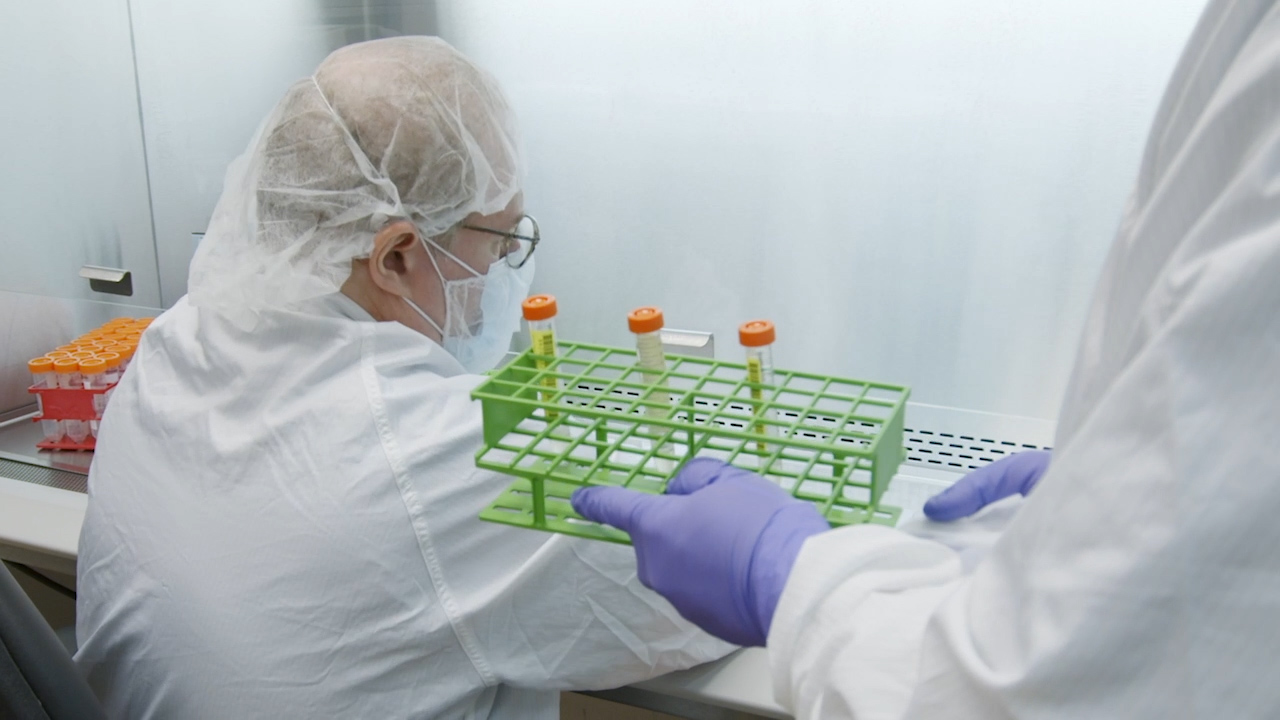02:40

Germany will become the first EU country to use antibody cocktails to fight COVID-19.
Two hundred thousand "monoclonal antibody therapies" developed by U.S. pharmaceutical giants Eli Lilly and Regeneron are being delivered to hospitals and clinics across the country this week.
The drugs have not yet been approved for COVID-19 treatment by the European Medicines Agency – but U.S. regulators at the Food and Drug Administration authorized its emergency use in November.
Antibody therapy was part of a COVID-19 "super cocktail" that also included steroids and antivirals and was administered to former U.S. President Donald Trump when he was hospitalized with the virus.
At the time, many doctors worried about its effects, because it did not have FDA approval and little research had been done.
"We're in a bit of uncharted territory," White House physician Sean Conley told reporters outside Walter Reed medical center.
German COVID-19 wards will become the first in the EU to use the experimental treatment, which harnesses antibodies by blocking the virus from spreading to new cells and making patients even sicker.
In laboratories, the strongest COVID-19-fighting antibodies are reproduced by the millions, before they are transferred and sealed in vials.
"The only approach besides active immunization is this passive immunization, by giving this prophylactic concentration of antibodies," said Timo Ulrichs Chair for Global Health at Akkon University in Berlin.
It's one of the most expensive coronavirus treatments and individual doses sell for around $2,000. Germany will pay more than $450 million for a delivery of 200,000 units.

Germany will become the first EU country to use antibody cocktails to fight COVID-19 – despite them not yet receiving approval from the European Medicines Agency. /CGTN
Germany will become the first EU country to use antibody cocktails to fight COVID-19 – despite them not yet receiving approval from the European Medicines Agency. /CGTN
The treatment has been credited with saving the lives of thousands of people fighting severe cases of COVID-19 in other parts of the world. Germany is currently battling record hospitalizations and a rising death count from the virus.
Some in the German parliament worry that health authorities will distribute the treatment without a proper warning label.
"I do welcome the purchase but on the other hand one thing concerns me: We need appropriate clinical trials that prove the efficacy of a drug and the safety of a drug," said Andrew Ullmann, a German member of parliament.
"We need to know the doses. And if that's not possible, patients can receive this drug, but they have to be aware that this drug's not approved and they are participating in a trial."
Late-stage studies released this week suggest that Regeneron – one of the two treatments acquired by Germany – could make infections symptomless if caught early enough.

